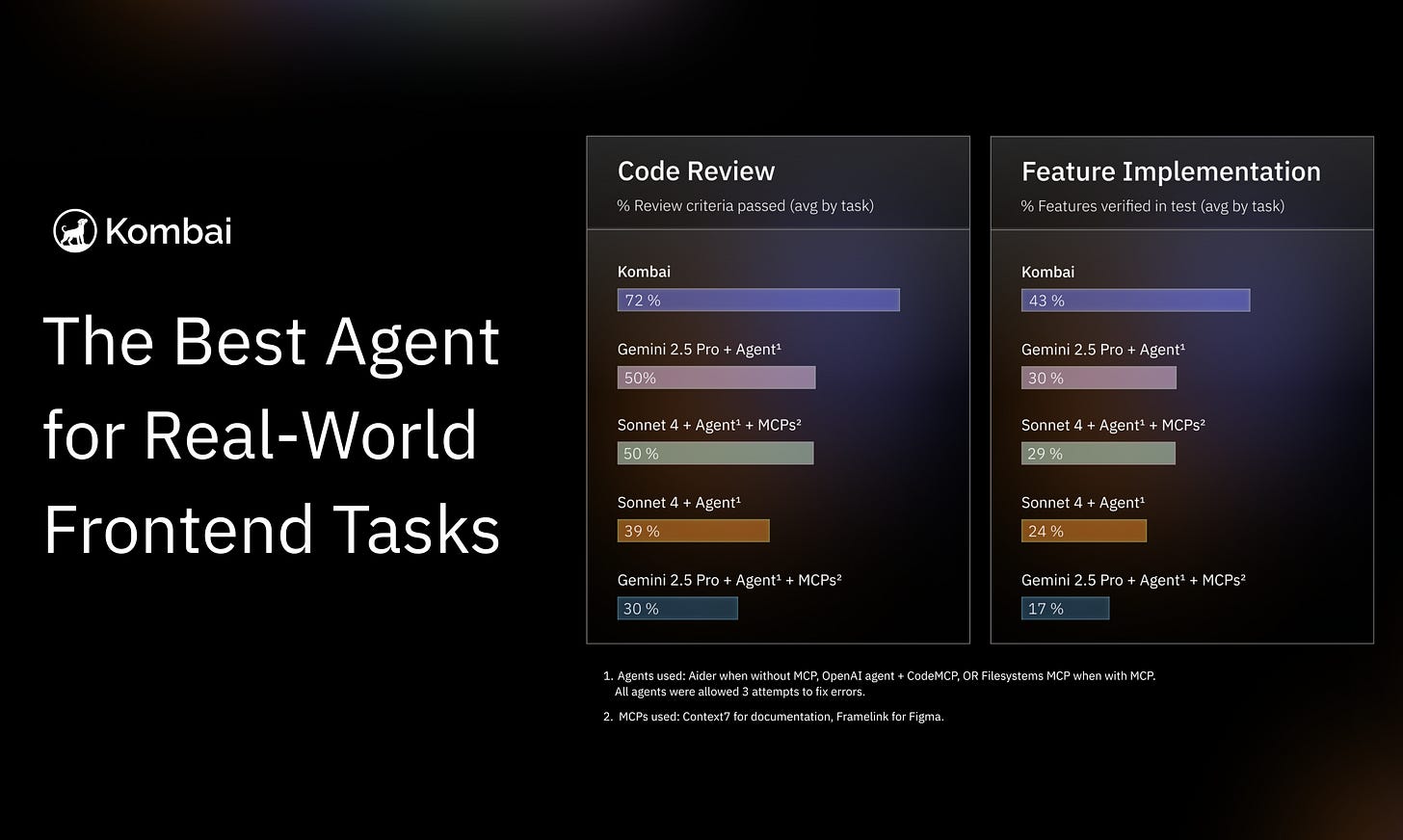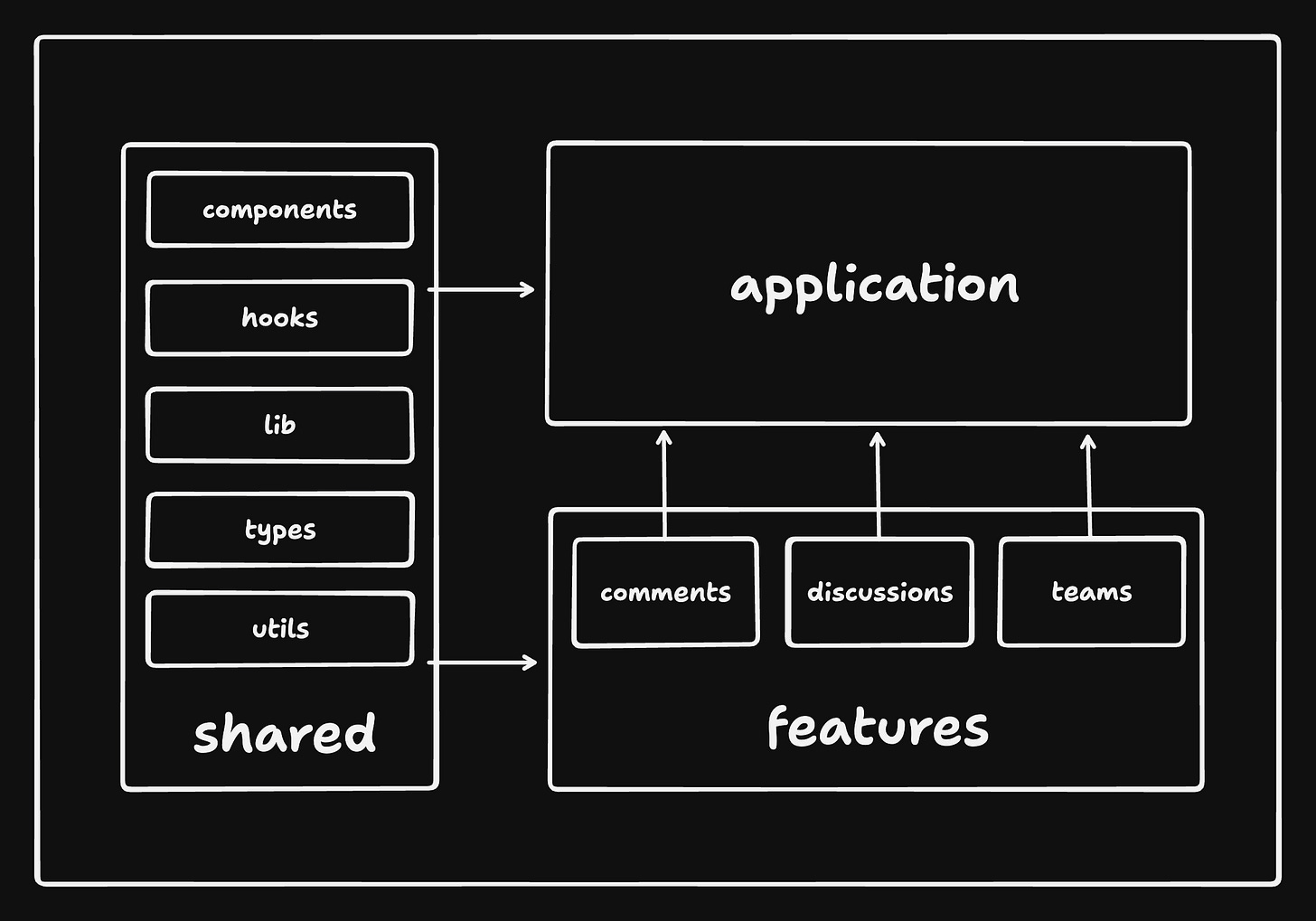This week in React - React Compiler Deep Dive, JavaScript Interview Prep, AI Agents, and Performance Best Practices
Learn React Compiler phases, nail JavaScript interviews with 6 essential questions, understand throttling vs debouncing, and discover AI agents that boost frontend productivity
This week’s drop breaks down what the React Compiler actually does under the hood, and covers 6 real interview questions you’ll definitely get asked. Plus the best React best-practices repo on GitHub.
Sponsor - Kombai - The First AI Agent for Real World Frontend Tasks
Kombai is the best agent at complex, production-level Frontend tasks because of its domain-specific context engineering and tooling.
It understands codebases, component libraries, figmas and best practices of 30+ libraries and works in Cursor/VS Code & Windsurf.
Kombai has achieved 30-60% better performance than generic agents and Claude 4/ Gemini 2.5 Pro on real-world frontend tasks.
Build a Frontend app with Kombai.
⚛️ This Week's Top 5 in React and AI News
1️⃣ Understanding Behind the Scenes of React Compiler
Lydia Hallie’s React Summit talk - React Compiler Internals shows what the React compiler does behind scenes. React Compiler optimizes React code by processing it in these phases -
High-Level Intermediate Representation (HIR): Converts JavaScript into a lower-level format where each operation is tracked with a unique instruction.
Single Static Assignment (SSA): Ensures each variable is assigned exactly once, helping the compiler disambiguate values that change across branches (like
if/else) using "phi" nodes.Effect and Reactive Analysis: Determines which values can change (are reactive), marking values that need to be re-evaluated on change.
Scope Discovery: Groups operations into scopes based on shared dependencies. Values that change together are cached together.
Code Generation: Translates scoped computations into actual
useMemoCachecalls.
2️⃣ Preparing for JavaScript Interviews? Here are the questions companies are asking
I have taken my 11+ years of Frontend experience in JavaScript and React and interviewing for companies like Apple, Amazon, Airbnb, Stripe, Slack and PayPal and compiled it into a 31 Days of Interview Questions series.
Here are 6 of those interview questions with solutions. These are a must-do! I have seen these questions being asked multiple times in interviews by so many companies. Want me to make part 2? Hit that LIKE button!
3️⃣ Difference between Throttling and Debouncing explained with a working example
If you are like me who gets confused between debouncing and throttling, I have a great resource for you! This article with its working example, although older, is exactly what I needed to understand how many times we allow a function to be executed over time.
Throttling imposes a cap: it ensures a function is executed at most once every X milliseconds, regardless of how frequently it's invoked. It's great for continuous high-frequency events while still enforcing regular interval responses. It is like a metronome or a train departing every minute: regular, predictable execution no matter how noisy the input is. This is typically used in scroll events.
Debouncing waits: it delays execution until no new calls have happened for a set duration—i.e., only triggers after a “quiet” period of X milliseconds since the last call. This is ideal when you want to respond after user input has settled. Debounce is like a waiter holding off on placing your order until you stop modifying it: only after a pause does the action go through—avoiding premature or multiple submissions. Debounce is perfect for input events such as typing in a search box to submit or process only once user has paused typing.
4️⃣ Confused about AI Agents? Here’s what you need to know
If you're confused about what AI agents actually are versus traditional workflows, this Twitter thread here is exactly what you need!
AI Agents are autonomous: they don't just respond but actively decide what to do, use tools, manage workflows, and iterate toward goals without constant human guidance.
Workflows are predetermined: they follow predefined paths and execute scripted instructions in a fixed sequence. While reliable and predictable, workflows can't adapt when unexpected situations arise. They simply follow their programmed steps regardless of context.
Core Components Every Agent Needs:
Brain:The LLM plus decision-making logic
Resources: Tools, APIs, and external data access
Action :Ability to execute tasks and iterate
5️⃣ Looking for React Best Practices? Here they are!
This GitHub repo has been voted as the best place to look for best practices. Bulletproof React by alan2207 is a goldmine if you're building production-grade React apps.
Here’s what stood out to me:
Folder Organization: This setup makes it super easy to scale from solo side projects to large teams. Clear boundaries between features, shared logic, and UI. It makes sense!
The code style feels familiar if you’ve worked in big tech. These aren’t random patterns someone dreamed up. They’re the kind of practices I’ve seen at places like Slack and PayPal. Tool-agnostic, principle-first guidance that works whether you're on Next.js, Vite, or something else.
The performance tips are actually are doable. This repo gives actionable advice to manage performance in a React application that actually helps in improving performance:
Route-level code splitting (not just lazy loading components)
Virtualized lists for big data sets
Bundle analysis that actually helps
Smart use of
useMemoanduseCallback(not just wrapping everything)Solid image optimization + lazy loading patterns
🔥 What I'm Building for You
1️⃣ JavaScript Fundamentals Series
Reading docs is easy, and doing tutorials is easier. But what's tricky is understanding why JavaScript trips you up in code and debugging the issues. In this series, I am taking the top 31 most difficult and tricky topics of JavaScript, as voted by people on Reddit and Stack Overflow, to help make it easier for you to understand JavaScript and its intricacies.
2️⃣ Worried about how many LeetCode questions to do for your Big Tech and FAANG interviews?
Let me help! In this upcoming livestream, I will bring in a Microsoft Engineer who cracked the Leetcode interviews and is here to help you understand exactly how to study for your Leetcode interviews. Don't miss it. Hit that bell icon so you get notified. We are taking live questions.
📊 Weekly Poll
I read every single response and use them to shape future content.
❤️ This newsletter is possible because of your support
1. Become a Sponsor: Love the work I am doing?
You can sponsor this newsletter! Reach thousands of focused and motivated engineers. Just hit reply to this email or send me an email
You can sponsor me via GitHub Sponsors! I am close to reaching my goal of 5 sponsors!
2. Spread the Word: Can't contribute financially? No problem at all! You can make a huge difference by -
Hit that like button so it reaches other people
Your support, in any form, helps me continue creating valuable content for developers worldwide. Thank you!
P.S. Forward this to a friend who's struggling with React fundamentals or JavaScript interviews. They'll thank you later!



